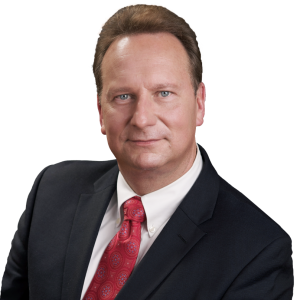Media Source: The Hill

The White House is bracing for potentially violent protests in Ferguson, Mo., as a grand jury decision appears imminent on whether to indict the white police officer who shot and killed an unarmed black teenager in August.
President Obama’s top spokesman on Tuesday urged peace amid warnings that violence could again erupt in the St. Louis suburb if the grand jury decides not to bring charges against Darren Wilson, the police officer who shot 18-year-old Michael Brown.
“I think the president is pretty mindful of the advice from Mr. Brown’s parents, who urged people to pay tribute to their son’s memory by expressing their views peacefully,” press secretary Josh Earnest said Tuesday. “And the president is mindful of that and hopes other people will be too.”
Obama has been meeting regularly with top officials within his administration — including Attorney General Eric Holder and senior adviser Valerie Jarrett — ahead of the expected announcement. He received a detailed briefing from the Justice Department on Nov. 7.
Later that day, the president also spoke with Missouri Gov. Jay Nixon (D) about the situation. Nixon on Monday declared a state of emergency and activated the National Guard, telling reporters he had “a responsibility to plan for any contingencies that might arise” in the wake of the grand jury’s decision.
The White House on Tuesday sidestepped questions about the move, saying Nixon’s office was “making those decisions.” But Earnest did indicate that Obama and Nixon discussed “steps” that could be “taken to protect the community” — including the possible mobilization of the National Guard — during their phone conversation.
Top civil rights groups have denounced Nixon’s move, saying it has inflamed tensions between demonstrators and the police.
“This issuance is creating fear and frustration in the Ferguson community and beyond, again unnecessarily escalating what is currently a peaceful situation,” said Alvin Herring, a deputy director of the PICO National Network, the nation’s largest faith-based organizing network.
Tensions were ratcheted up further by an FBI bulletin issued Friday warning that the grand jury decision could result in attacks on police officers and key buildings.
“The announcement of the grand jury’s decision … will likely be exploited by some individuals to justify threats and attacks against law enforcement and critical infrastructure,” the bulletin said, according to ABC News. “This also poses a threat to those civilians engaged in lawful or otherwise constitutionally protected activities.”
Civil rights icon Rep. John Lewis (D-Ga.) echoed that concern Tuesday, warning in a radio interview that a “miscarriage of justice in Ferguson” could result in “massive, nonviolent protests all over America.”
“I think what is happening is moving to that point, where there would be the same feeling and climate and environment that we had in Selma,” Lewis , said in an interview with Roland Martin. Lewis was brutally beaten by state troopers in that Alabama city on “Bloody Sunday” in 1965.
The White House, for its part, says the administration has been working hard to try to address deep-rooted concerns exposed by the Brown killing.
The president himself met with top civil rights leaders, including the Rev. Al Sharpton, a day after the midterm elections, to discuss a variety of topics, including Ferguson.
Sharpton told The New York Times that Obama “was concerned about Ferguson staying on course in terms of pursuing what it was that he knew we were advocating.”
“He said he hopes that we’re doing all we can to keep peace,” Sharpton added.
A White House official said the administration had “been continuously engaged on Ferguson since the shooting happened in August,” pointing to a series of meetings and orders from Holder designed to bridge the gulf of mistrust between police and community members.
Last week, the attorney general called state and local officials in Missouri to stress that “it will be more important than ever that the law enforcement response to the demonstrations always seeks to deescalate tensions and respect the rights of protestors,” according to Justice Department spokesman Brian Fallon.
Holder also said he was encouraged because community leaders had reached out to coalition leaders likely to be leading protests in the aftermath of the decision.
Earlier this month, the Justice Department’s Office of Community Oriented Policing Services held a two-day training session with area police forces. Federal officials offered technical assistance and command-level law enforcement leadership training.
And in October, Justice Department leadership spent two days in the city to meet with police to discuss the federal investigation into whether the Ferguson Police Department had violated federal laws on discrimination. The federal officials also pushed Thomas Jackson, the chief of police in Ferguson, on identification requirements for officers serving in the field.
Holder and the Justice Department have resisted putting a specific timeline on that investigation or on the federal inquiry into the handling of Brown’s case. Federal investigators still have not concluded their investigation of the death of Trayvon Martin, another high-profile shooting of an unarmed black teen, which occurred in 2012.
Paul Millus, a lawyer with firm Meyer Suozzi, said it would be very difficult to mount a federal civil rights case against Wilson if the grand jury declined to charge him in Brown’s death.
“It is highly unlikely that such a proceeding could be commenced or be successful based upon the lack of any report that race played a role in the decision making by the officer to either stop and/or shoot Michael Brown,” Millus said. “Federal civil rights laws require such discriminatory intent before an individual could be charged.”
The Justice Department, for its part, said Holder has “devoted significant resources to these investigations in order to ensure they are conducted in as thorough and expeditious a manner as possible.”
990 Stewart Avenue, Suite 300,
Garden City, NY 11530
750 Ninth Street, Suite 501
Washington, D.C. 20001
Phone(202) 887-6726Fax:(202) 223-0358


